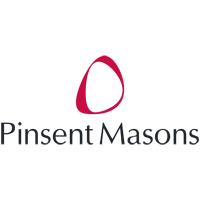

Group general counsel and company secretary | Lloyds




Kate Cheetham
Group general counsel and company secretary | Lloyds
Chief legal officer and Company secretary | Lloyds Banking Group plc (LBG)
Banks and professional services | Lloyds Banking Group
Team size: Around 300 Major law firms used: Addleshaw Goddard, Allen & Overy, Ashurst, CMS Cameron McKenna Nabarro Olswang, Eversheds Sutherland, Herbert Smith Freehills, Hogan Lovells, Linklaters Kate Cheetham is...
Team size: Approx 350 excluding secondees
What are the most important transactions and litigations that you have been involved in during the last year?
The first thing to mention would be our response to Covid, especially the introduction of government-backed lending schemes, under which Lloyds Banking Group has lent approximately £12bn to businesses, and the ongoing support required to deliver these effectively. Additional Covid support for customers included almost 35,000 capital repayment holidays, as well as new overdrafts and new invoice finance, retail payment holidays and free additional insurance cover for NHS and Care workers, and legal support on a range of HR matters, including data privacy and cyber security for colleagues working from home.
We adapted to remote court hearings and meetings for various litigation and employment tribunal matters, and continued to manage a significant litigation portfolio including landmark cases that were relevant across the industry. This includes a £450m – £600m group litigation by shareholders regarding the HBOS acquisition, whereby our defence was successful and permission to appeal denied.
We ensured the Group’s 2020 annual general meeting was held in accordance with our articles of association whilst complying with Covid-related legislation and regulations, and protecting the health of those involved. In a similar vein, we established our inaugural shareholder virtual event to enable our retail shareholder base a platform to raise issues.
We engaged in continued support on the Group’s business as usual activities regarding its business, financial, and other affairs with a backdrop of Covid and the EU Exit. For example, we assisted on transactions in the bond markets, which were often market leading and ‘noteworthy’ to investors.
What were the main steps you took to protect the business once it became clear we were in the midst of an unprecedented challenge?
Our initial focus was to support colleague health and wellbeing by giving reassurance. We quickly provided communications to colleagues to confirm the support available on numerous topics including pay, mental health, remote working, wellbeing desks in offices, and family support services. For permanent colleagues, we continued to pay their contracted hours as normal, no matter what their role is, how the pandemic affected what they do, or what their circumstances were. An online portal for mental health was developed and support guides were provided to colleagues, which were updated regularly and contained specific guidance, resources and a colleague network for parents and carers. Business continuity plans were invoked to ensure that services to our customers were maintained, with particular focus on the availability of online banking facilities.
We also quickly developed solutions for hosting virtual mediations and court hearings, and set up a system to ensure all legal mail was still dealt with to avoid any risks. We had greater engagement with key stakeholders to ensure Legal & Secretariat was as responsive to business needs as possible. We refocused and redeployed resource to ensure increased coverage for customer facing areas most impacted by the pandemic. Our teams also reprioritised their work to focus on the most critical matters.
How have you maintained your team’s cohesion when you have been unable to see them face-to – face as regularly as usual?
We set up a program of regular communications to maintain a prevailing feeling of togetherness, and I have continued to hold informal bi-weekly video conferences with open and honest question and answer sessions on the challenges faced including personal resilience, workload issues and mental health challenges. I also increased the number of regular virtual meetings and touch-points with my senior leadership and wider leadership teams to discuss and monitor the wellbeing of colleagues, the workload of teams, and the people and resource risks created by the pandemic.
The Group provided colleagues with free access to tools such as Headspace, and I leveraged the capability of my legal and secretariat people group to set up a program of team-based activities focussed on boosting morale and physical well-being.
Because of the extraordinary situation we were managing in our professional and private lives, we ensured that our leadership style set an understanding and inclusive tone. For instance, we made it clear that interruptions from family members, pets or courier deliveries during video conference team meetings were perfectly acceptable.
Did the Brexit deal reached at the end of 2020 give you and your business greater clarity for the future?
The Group planned for a no-deal EU exit and for no permanent regulatory equivalence for financial services, and the deal reached at the end of 2020 confirmed that such planning had been appropriate. However as the future around regulatory equivalence is not yet certain, the deal did not provide full clarity.
A lot of cross-divisional legal work was done to anticipate and ensure compliance with the onshoring of specific Statutory Instruments (SIs) on day one; work on the remaining SIs will continue until the deadline in March 2022. This work has required – and continues to require – cross-collaboration between many internal legal teams, our panel law firms, different business stakeholders and our UK and EU regulators. We are clear on what we can and cannot do today and have established an alerter system with one of our panel firms to flag any changes that will be made, resulting in the Group being well set up to handle these.
In what ways do you see the in-house legal role evolving over the next few years?
Our vision is to partner the business with empathy, courage and creativity to help Britain recover and prosper. To do this, we need to continue to add value beyond technical legal expertise. We recognise the requisite skills for this and arefocused on continuing to develop from being primarily product and specialist lawyers to being purpose-led multi-skilled lawyers, colleagues, and leaders with a regulatory focus. As trusted business partners, we look to spot opportunities and new business propositions, and positively influence prospective regulation, legislation and best practice.
We’ll need to keep pace with digitisation, embrace and drive technological change, and become more agile to truly understand and effectively support our evolving business. As one example, we’re looking at the use of chatbots to increase efficiency.